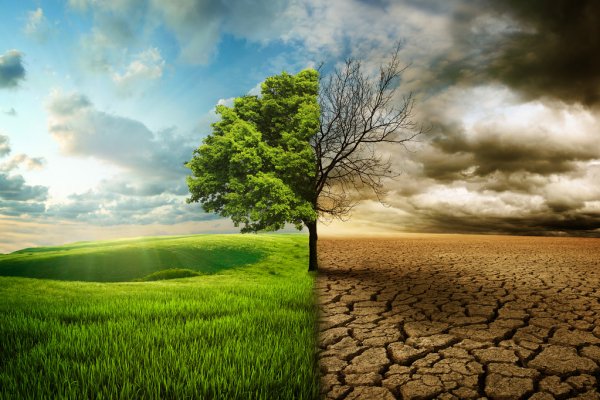covid-19 pandemic has shed light on many of humanity's greatest problems. We've all witnessed the messy politics, ruinous fires, and overall panic everywhere we look. Climate change, however, is not as discussed - June Price, 6th grade
The COVID-19 pandemic has shed light on many of humanity's greatest problems. We've all witnessed the messy politics, ruinous fires, and overall panic everywhere we look. Climate change, however, is not as discussed.
Climate change is essentially the increase in carbon dioxide in the atmosphere. Most forms of transportation, factories, oil, coal, and power plants largely contribute to the carbon dioxide emissions. The effects of climate change include rising sea levels, storms, mass extinction of species, and torturous temperatures.
But how has the COVID-19 pandemic influenced carbon emissions? Oil, coal, and airline sales have declined dramatically due to people being quarantined in their homes. Furthermore, cardboard and plastic usage is higher than ever. More packaging has been needed to ship the online orders made out of fear of “actual” stores.
However, with this in mind, scientists estimate that the global shutdown due to the coronavirus is likely to result in a 4-7 percent decrease in annual carbon dioxide emissions. On the other hand, scientists also report that to prevent global temperature averages rising 34 degrees Fahrenheit, carbon emissions must drop by 7.6 percent every year this decade. Then add the additional reductions we need to reach zero emissions by 2050.
As disheartening as that news may be, experts are insisting there is still time and hope.
“The next ten years for climate change is what February was to the coronavirus,” says Bill McKibben, founder of 350.org, an organization dedicated to ending the use of fossil fuels—urges us to act quickly and decisively on the climate crisis. (from a recent episode of Harvard Law Professor Noah’s podcast)
"COVID-19 may deliver some short-term climate benefits by curbing energy use, or even longer- term benefits if economic stimulus is linked to climate goals – or if people get used to telecommuting and thus use less oil in the future," says Jason Bordoff, special assistant to President Barack Obama during an op-ed published in Foreign Policy in April.
There is still a chance for humanity, a chance to reverse what we have done to our planet. It may be true that we're only in charge of ourselves, but your actions make a bigger impact than you think.
Avoiding paper that isn't recycled, plastic, planes, and cow products are great ways to help. There is so much we can do, and we must do it if we want to recover and grow from this overwhelming time.
Climate change is essentially the increase in carbon dioxide in the atmosphere. Most forms of transportation, factories, oil, coal, and power plants largely contribute to the carbon dioxide emissions. The effects of climate change include rising sea levels, storms, mass extinction of species, and torturous temperatures.
But how has the COVID-19 pandemic influenced carbon emissions? Oil, coal, and airline sales have declined dramatically due to people being quarantined in their homes. Furthermore, cardboard and plastic usage is higher than ever. More packaging has been needed to ship the online orders made out of fear of “actual” stores.
However, with this in mind, scientists estimate that the global shutdown due to the coronavirus is likely to result in a 4-7 percent decrease in annual carbon dioxide emissions. On the other hand, scientists also report that to prevent global temperature averages rising 34 degrees Fahrenheit, carbon emissions must drop by 7.6 percent every year this decade. Then add the additional reductions we need to reach zero emissions by 2050.
As disheartening as that news may be, experts are insisting there is still time and hope.
“The next ten years for climate change is what February was to the coronavirus,” says Bill McKibben, founder of 350.org, an organization dedicated to ending the use of fossil fuels—urges us to act quickly and decisively on the climate crisis. (from a recent episode of Harvard Law Professor Noah’s podcast)
"COVID-19 may deliver some short-term climate benefits by curbing energy use, or even longer- term benefits if economic stimulus is linked to climate goals – or if people get used to telecommuting and thus use less oil in the future," says Jason Bordoff, special assistant to President Barack Obama during an op-ed published in Foreign Policy in April.
There is still a chance for humanity, a chance to reverse what we have done to our planet. It may be true that we're only in charge of ourselves, but your actions make a bigger impact than you think.
Avoiding paper that isn't recycled, plastic, planes, and cow products are great ways to help. There is so much we can do, and we must do it if we want to recover and grow from this overwhelming time.


